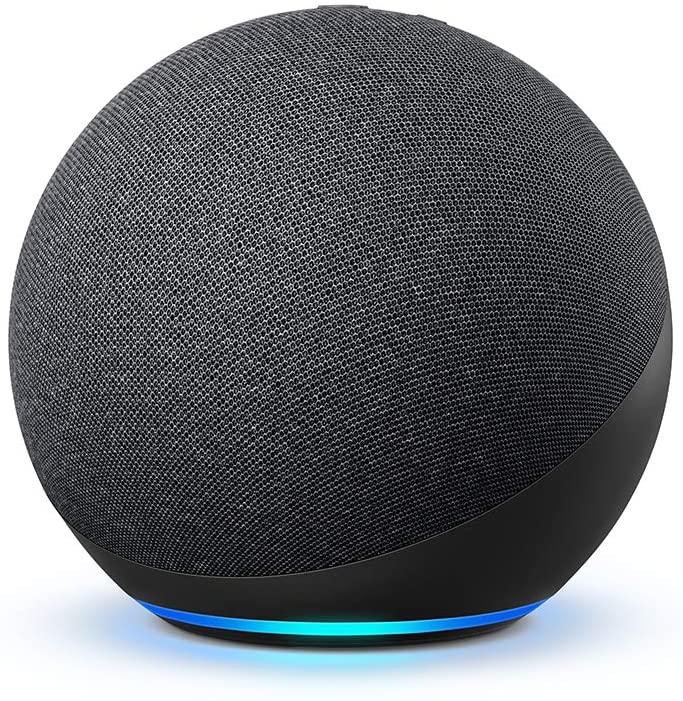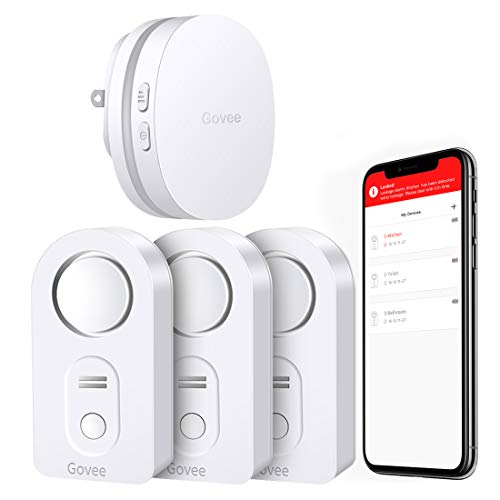
We’ve talked about this before, but there are a lot of smart home devices out there. That means that there’s something for just about everyone, from kids to the elderly. But if you’re looking for a smart solution for somebody who hasn’t exactly kept up with technology, you may be wondering just what sort of devices to get them. You may be looking for something simple, easy to control, with obvious benefits — and that doesn’t require knowing the difference between, say, a Nest and an Echo.
No problem! As long as the person you have in mind doesn’t mind using an app once in a while (or having someone else take care of all the settings and updates), there are plenty of smart home options they’ll love. Let’s go over a few of our favorites.










Start with a reliable router
Google Nest WiFi
- Simple installation and setup
- Google Assistant integration
- Ability to expand coverage
- Contemporary design fits any decor
- Somewhat expensive
- Single ethernet port
Outside of a few rare exceptions, smart devices need a Wi-Fi network to operate. But if you’re picking something special for a person who doesn’t use much technology, you should make sure they have Wi-Fi — and a router that it’s up to the task. We have a great collection of the best, newest routers for you to check out; the easiest one to set up is the Google Nest WiFi. Overall, here are a few features that a Wi-Fi router should have for compatible smart devices:
- Good range: Smart home devices are often placed on exterior walls or the far reaches of the house and need a router with good range.
- Smart beamforming technology: This helps routers optimize connections and avoid dead zones.
- Dual bands: This means the router can support devices on both the 2.5Ghz and 5Ghz bands. Look for models that can automatically switch devices between the two to fix problems.
- Wi-Fi 6: It’s not necessary for smart devices, but it includes all the latest speed and security protocols and is a great way to ensure all the other router features have what you need. Plus, it’s good future-proofing for devices you'll add to your smart home.


Get started with voice commands
Amazon Echo 4th-gen
- Charming new spherical design
- Dazzling LED light ring
- Acts as an Amazon Sidewalk Bridge
- Great sounding audio
- Bass strains at highest volume
Once someone gets used to saying voice commands, a smart speaker like an Echo can be an incredibly handy device to have around the home. It can answer questions, schedule vents, start phone calls with loved ones, and even activate a Guard setting to listen for sounds of broken glass when no one is home. You also have full control of privacy settings and can keep the voice assistant Alexa from saving audio recordings, as well as manually shutting off the mic whenever you want.
There’s another reason that an Echo is a good choice, especially for those aging in place. That’s Amazon’s Alexa Together service, a $20 per month subscription designed for the elderly that can make connecting with family easier, use remote assist features and reminders, allow access to 24/7 emergency response or fall detection, and give family members activity feeds.
Oh, and if someone doesn’t mind a screen, they can also choose an Echo Show, which enables video chats and can show slideshows of beloved photos. The latest can even mount on a wall like a picture frame.


See what's going on outside even when you're not home
Nest Video Doorbell (Battery)
- Gorgeous minimalist design
- Intelligent alerts
- Doesn't require subscription for video history
- Useful quick responses
- Fine video details are on the soft side
- Inconsistent capture rates
A video doorbell is a simple security device that anyone can appreciate. It uses two-way audio and a security cam so that users can keep an eye on the front door and talk with people remotely if necessary. Motion sensors can track nearby movement and send alerts to a phone when someone is detected.
This Nest model is particularly easy to recommend, because Nest’s platform is very easy to set up and use, and Nest has an excellent cloud storage plan with a free tier. Nest’s cam lens is also designed to keep an eye on everything from the street to the doormat to make sure packages are easy to spot. Plus, the battery model can be placed in many different locations.


Detect a leak before damage occurs
Govee Water Sensor pack
- Comes with 3 remote sensors
- Receive audible and app alerts
- No subscription
- Doesn't support 5G
- Will need to replace the batteries
No one likes the idea of a leak around their home, especially if it’s not detected in time to prevent lots of damage. This pack of water sensors and its associated hub offer a practical solution: Place them on the floor, and if they detect a layer of water, they will sound an alarm or send an alert to a mobile device. You can put them behind toilets, under sinks, near hot water tanks, and many other locations — and they run off AAA batteries, so you don’t need to teach anyone how to recharge a built-in battery.


Set up a smart DIY security system
SimpliSafe Home Security
- Beautifully designed base station blends seamlessly into home
- Set and forget installation means you’re only interrupted if there’s a problem
- Low-cost home monitoring service provides comprehensive coverage
- No contracts
- Limited smartphone integration out of the box
- Home monitoring service subscription required
DIY home security systems can be set up wherever owners want and typically include a range of devices like door and window sensors, a security cam, motion detection, and more — all on the same platform. It’s a practical solution and there are many excellent kits available, but SimpliSafe’s is a reliable, thorough option for those who want some house protection.


Train your thermostat to keep your home at the temp you like
Nest Learning Thermostat
- Affordable cost
- Smart functions mean minimal interaction
- Stylish Apple-like design
- Simple DIY installation
- Capacitive controls are only on one side
Don’t worry if someone isn’t technologically savvy — the Nest Learning Thermostat does almost all the work itself. Once set up, users can control their home temperatures remotely or with the thermostat’s dial and set up schedules at their leisure. The thermostat uses a combination of sensors to detect when people are moving around the house and can adjust its own temperatures accordingly, whether it’s trying to save energy during the day or learns that someone likes to get up in the middle of the night a lot.

June Oven Plus
- Air fryer, convection oven, slow cooker, toaster, and more
- Can act as a warming drawer
- Suggests cooking times
- Expensive
Those who love to cook will find this countertop appliance an excellent addition to the kitchen. It can do a little bit of everything, including air frying, slow cooking, dehydrating, convection cooking, toasting, broiling, and serving as a warming drawer. It’s also plenty smart, with app controls, voice command compatibility, and even a camera that can automatically recognize foods and suggest cooking routines. We also like that it’s compact enough to fit just about anywhere in a busy kitchen.


Ensure your air is clean
Nest Protect
- Easy setup
- Clear warnings, including spoken alarms
- No hub required
- No more gestures to shut it off
- Limited integration with Nest thermostat
Like the other Nest devices we’ve mentioned, the Protect is excellent at staying out of the way and doing its job. It’s a combination smoke and carbon monoxide detector that can be turned off via app instead of ladder, and it will send alerts when it needs its battery replaced. Just check your state laws about fire alarm requirements before you buy — there are both battery and wired versions available.


Say goodbye to vacuuming
iRobot Roomba S9+
- Superb cleaning performance
- Self-emptying dust bin
- Multi-floor smart mapping
- Precise object detection and navigation
- High price
The more advanced Roombas really know how to take care of themselves. They can automatically sense rooms, walls, and furniture, then create a cleaning route themselves without needing a lot of programming via the app. They will also automatically return to their base station for charging and emptying their on-board bins, so all the user has to do is empty the station bin from time to time — ideal for hands-off usefulness.




